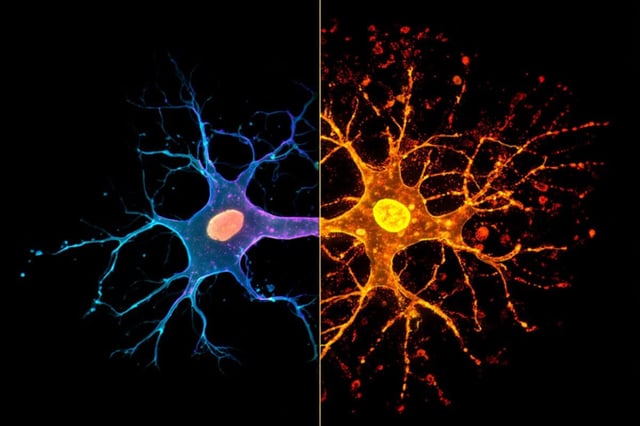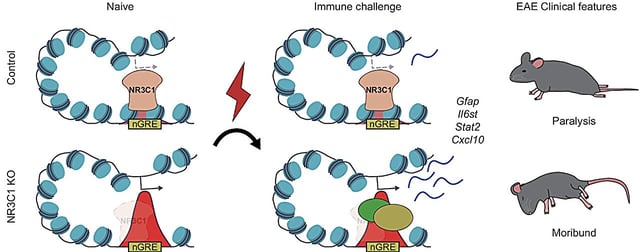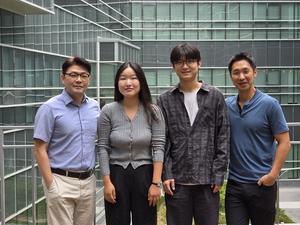Overview
- KAIST-led researchers report that NR3C1 functions during a brief early-postnatal window to enforce long-term restraint of astrocyte immune programs.
- Only depletion in this early window, not later in development, produced durable epigenetic reprogramming that heightened adult inflammatory responses.
- Astrocyte-specific NR3C1 deletion did not disrupt normal development but worsened disease severity in an adult experimental autoimmune encephalomyelitis model.
- The team mapped 55 stage-specific transcription factors using 3D epigenome profiling, RNA sequencing, and chromatin accessibility analyses, identifying NR3C1 as the critical early regulator.
- The peer-reviewed study appeared online September 22 in Nature Communications, with a related commentary published earlier, and authors note human implications remain exploratory.



